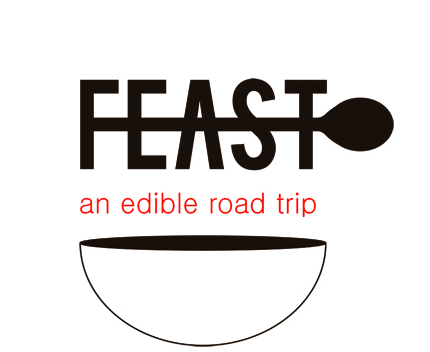The Friendliest Mill
“Impossibly friendly.”
This is how Dana described the Maritimes, a place I’d never been before FEAST. Of course, as a lover of friendly people I hoped this would be true, but couldn't help but fear she was setting my expectations too high. Guess what:
She was right.
At Speerville Flour Mill, one of our first stops, her theory proved true immediately. Todd (who heads Speerville), Richard, and Corey (both managers) could not have been better people to welcome us to New Brunswick.
The mill’s beginning dates back to the 70’s, long before ‘organic’ had became ultra-trendy. A local man named Murray Hubbard decided his community should be more self-sufficient, so he organized the formation of a co-op. With the help of a government grant, they conjured up some very old milling equipment and work began on a local grist mill. In 1980 they had their first commercial grind, and Speerville Flour Mill was born. Over the decades, their offerings have gone from just a few types of flour to over 120 different organic products.
Since much of the food in the Maritimes is imported, Speerville is dedicated to supporting the farmers of Atlantic Canada by locally sourcing all their grains and as many other foods as possible. They’re also continually working to build up markets for products before asking local farmers to grow them (organic popcorn, for example, was the project when we were there). The idea is that once the demand is there, they can then ask Maritime farmers for the supply.
For their grains, they exclusively use stone mills, unlike conventional milling systems that utilize steel. If stone ground at a cold temperature, the most important part of the grain – the germ – remains intact. 99.9% of the kernel is also left, and there’s no need for bleaching, chemicals, or fumigation. With conventionally-milled flour, the ground flour is first stripped of many nutrients, then a few (but not all) are added back, often after the flour is bleached.
Speerville sharpen their granite stones themselves, and grind a huge variety of grains including heritage varieties like Spelt, Kamut, Red Fife, and Acadian, a heritage grain that came over from France centuries ago. Many local farmers had unsuccessful crops of the grain, and the remaining seed had dwindled to just ten pounds. Speerville eventually passed on several pounds to Barnyard Organics on PEI (more to come on these fine folks), who nurtured it into a 16 tonne crop last year, 10 tonnes of which Speerville recently milled. Watch out world – here comes Acadian wheat!
Over the past few years, the company has built a new milling facility that includes a huge warehouse and a great deal of equipment they developed and built themselves. We toured both the old and new sites, and got to check out their Le Panyol wood-fired oven. It is possible to develop a crush on an oven, so I discovered after seeing it.
I didn’t really expect to go to rural New Brunswick and find a group of men so passionate about sustainable and organic food. But there they are, challenging each other to cooking and baking entirely locally-sourced meals, and working actively to change the economic and agricultural landscape of the Maritimes. For the better, I might add.
A huge thank you to Richard, Todd, and Corey for taking the time to show us around. Corey even caught up to us on our way out of town, just so he could show us this tucked away piece of New Brunswick. Their New Brunswick.
-LA








